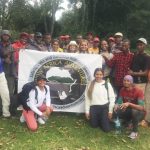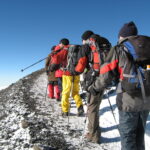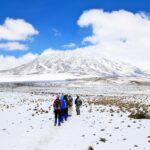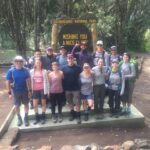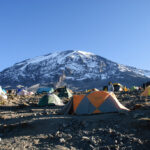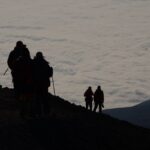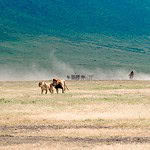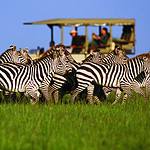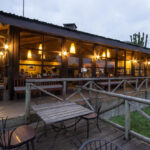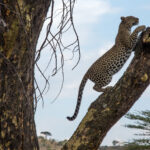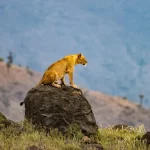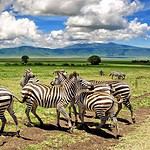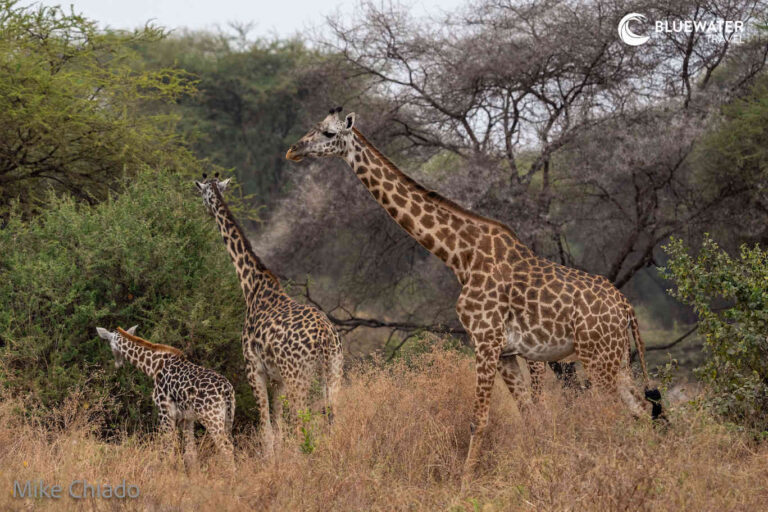Table of Contents
Coffee & Safari Combo: From Farm to Wildlife Adventure
In Tanzania, the best travel experiences blend cultural richness and wild landscapes. A coffee farm safari Tanzania brings together two of the country’s icons—aromatic coffee plantations and legendary wildlife reserves. This immersive journey takes you from morning harvests on misty hills to afternoon game drives roaring with elephants, lions, and zebras. Throughout your trip, you’ll discover how local farmers cultivate beans, support communities, and fuel safari tourism.
1. What Is a Coffee Farm Safari Tanzania?
A coffee farm safari Tanzania combines guided tours of coffee estates—learning about planting, picking, and roasting—with wildlife safaris in national parks. These two-step adventures offer a multisensory journey:
- Coffee tasting and culture on-site at highland farms.
- Afternoon or next-day wildlife drives in nearby parks like Ngorongoro or Serengeti.
This unique combination results in one seamless coffee farm safari Tanzania experience.
2. Why Choose a Coffee Farm Safari Tanzania?
Opting for a coffee farm safari Tanzania means:
- Supporting sustainable smallholder farms and cooperatives.
- Sampling world-class Tanzanian coffee at the origin.
- Connecting with local villagers and understanding socio‑economic impact.
- Witnessing the famous Big Five on safari drives.
- Enjoying a varied itinerary blending rich aromas and wildlife encounters.
A coffee farm safari Tanzania provides context, taste, and wild beauty—making it a travel highlight.
3. Top Coffee Regions to Visit
a. Mbeya Highlands
This mountainous region offers lush estates and family-run plots. A coffee farm safari Tanzania here includes walkthroughs of sun-dried beans and tastings at homestead roasters.
b. Kilimanjaro Slopes
The fertile slopes of Mount Kilimanjaro produce high-grade Arabica beans. A coffee farm safari Tanzania takes place against scenic backdrops of sugarcane fields.
c. Arusha and Meru Region
Close to Arusha National Park, this area blends coffee visits with nearby safari experiences. A coffee farm safari Tanzania combines farm rhyming with wildlife encounters.
d. Tarime and Lake Victoria Zone
While known for tea, these areas also host small coffee cooperatives. You can join locally‑led coffee farm safari Tanzania programs to community-driven estates.
4. Typical Coffee Farm Safari Tanzania Itinerary
Day 1 – Farm Immersion
- Arrive at a coffee estate on the Mbeya Highlands.
- Welcome tour of nursery, shade-grown trees, and drying beds.
- Participate in picking ripe cherries during harvest season.
- Learn traditional pulping, fermenting, and washing methods.
- Sample “green cup” and roasted profiles at the estate cupping table.
Day 2 – Cultural and Wildlife Blend
- Visit a neighboring cooperative.
- Join a local roasting demo or milling process.
- Transfer to Tarangire NP or Serengeti for evening game drive.
- Compare morning coffee aromas to wildlife sounds.
Day 3 – Full Safari Day
- Early morning coffee-inspired breakfast.
- Set off for sunrise game drive.
- Observe elephant herds, giraffes under acacia trees.
- Afternoon rest, then evening sundowner over wildlife vistas.
Day 4 – Harvest to Lodge Relaxation
- Optional farm revisit for hands-on bean processing.
- Transfer and overnight at bush lodge with coffee from local plantations.
- Enjoy lodge coffee tastings featuring estate blends.
This coffee farm safari Tanzania itinerary blends coffee culture with safari thrills in a single journey.
5. Coffee Processing & Culture
Coffee is central to Tanzanian culture. A coffee farm safari Tanzania highlights:
- Shade-grown Arabica traditions versus sun-grown beans.
- Sustainable farming practices like composting and water-saving.
- The “cup of excellence” process through cupping sessions.
- Community dynamics such as shared rotating harvests.
- Traditional coffee preparation styles—from strong black to milky brews.
These elements enrich your coffee farm safari Tanzania experience.
6. Wildlife Component
After morning farm stops, the safari component begins:
- National parks like Tarangire, Lake Manyara, or Serengeti.
- Game drives reveal lions, zebras, buffalo, and elephants.
- Birdwatching for species like the lilac-breasted roller.
- Sundowner time while sipping local coffee roasts.
- Night drives add nocturnal wildlife viewing.
You’ll see nature’s spectrum—both the coffee bean and wild animal kingdoms.
7. Conservation & Sustainability
A coffee farm safari Tanzania contributes to:
- Fair-trade sourcing and sustainable agriculture.
- Wildlife preserve funding through safari park fees.
- Community uplift through shared tourism profits.
- Renewable energy use on farms and eco-lodges.
- Education on environmental stewardship.
Together, coffee and safari drive sustainable travel in Tanzania.
8. Where to Stay on Your Journey
Accommodations during a coffee farm safari Tanzania may include:
- Highland farm lodges near coffee fields.
- Eco-lodges using solar power and local materials.
- Tented safari camps in grasslands.
- Community-run homestays supporting local incomes.
- Luxury safari lodges near wildlife hotspots.
Many lodges offer coffee tastings sourced directly from estate partners.
9. What to Pack
For a coffee farm safari Tanzania, bring:
- Lightweight clothing for farm hours.
- Comfortable walking shoes for milking, pods, and hiking.
- Binoculars and camera for both birds and wildlife.
- Notebook for tasting notes and wildlife logs.
- Reusable mug for tastings.
- Sunscreen, hat, and water bottle.
Pack smart for farm and bush in one trip.
10. Best Time to Go
Ideal seasons for a coffee farm safari Tanzania:
- Harvest season (April–July, Sept–Nov) for hands-on farm experience.
- Dry season (June–October) for optimal game viewing.
- Shoulder seasons balance farm access and wildlife sightings.
Combine your timing for peak aroma and best drives.
11. Booking & Pricing
Typical coffee farm safari Tanzania deals include:
- 3- to 5-night packages from $600–$1600.
- Inclusions: estate tours, lodge stays, safari drives, guide fees.
- Customizations: farm work days, photography workshops.
- Book directly with eco-lodges or specialist tour operators.
Ensure transparency: check which farm and park your safari supports.
12. Traveler Stories
“Tasting fresh roast at dawn before a Masai Mara drive was surreal—warm coffee in hand, lions roaring in the distance.”
“Roaming bean rows with farmers and tracking elephants felt like walking through Tanzania’s heartbeat.”
These testimonials capture the coffee farm safari Tanzania magic.
13. Health, Safety & Culture
During your coffee farm safari Tanzania:
- Bring malaria prophylaxis and insect repellent.
- Drink bottled or filtered water.
- Respect planting schedules—ask before walking fields.
- Interact with farmers with open curiosity and cultural respect.
- Use sunscreen and cover tracks minimally in wildlife zones.
14. Why You’ll Remember It
What makes a coffee farm safari Tanzania unforgettable:
- Aroma of fresh beans at sunrise.
- Cultural exchange with farm families.
- Wildlife sightings between brewing breaks.
- Dual sensory engagement: smell, sight, sound.
- Ethical tourism: your stay supports both agriculture and conservation.
Coffee by day, wildlife by dusk—this journey lingers long after travel ends.
A coffee farm safari Tanzania is a travel experience that awakens all the senses—from warm brews on a mountainside to wildlife roaring across golden savannahs. It’s a harmonious blend of farm culture and wild adventure, steeped in sustainability and authenticity.
Plan your trip today for a coffee farm safari Tanzania that flavors your soul, fuels your wanderlust, and enriches local communities.

